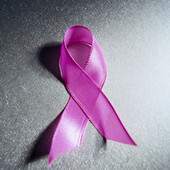
MONDAY, April 26 (HealthDay News) — Some risk factors known to increase the odds of breast cancer in white women have less impact on Hispanic women, a new study shows.
For instance, for postmenopausal women in the study, “recent hormone use and younger age at menarche did not appear to play as big a role in Hispanics,” said Dr. Lisa M. Hines, an assistant professor of biology at the University of Colorado and lead author of the study, published online April 26 in Cancer.
For younger women studied, family history and taller height — found in general to slightly increase breast cancer risk, Hines said — did not appear to be as strongly linked with breast cancer among Hispanics as among whites, the study found.
Researchers have long known that breast cancer rates, as well as death rates from the disease, vary by ethnic group. For instance, according to a national database, Hispanic women are less likely to get breast cancer than are white women, with 89 of every 100,000 Hispanic women getting a breast cancer diagnosis, compared with 132 of every 100,000 non-Hispanic white women.
However, Hispanic women are more likely to die from the disease, the statistics show.
“That’s been known for a long time,” Hines said. “The question is why.”
About 15 percent of the U.S. population is Hispanic, and their numbers are growing, Hines noted, but few studies have looked at breast cancer risk in the Hispanic population to see if the accepted risks for breast cancer — identified from analyses that included predominately white populations — hold for Hispanic women.
For the new study, Hines and her colleagues analyzed information on white and Hispanic women enrolled in the 4-Corners Breast Cancer Study, so named because participants lived in New Mexico, Utah, Arizona and Colorado, four states whose boundaries touch at one point.
They evaluated data on 4,809 women — 3,134 postmenopausal and 1,675 premenopausal. Women with breast cancer had been diagnosed from 1999 to 2002. All participants had been asked about accepted factors known to affect breast cancer risk, including their reproductive history, activity level, height, hormone use, alcohol intake and family history.
The links for some risk factors were either weaker or not found at all in postmenopausal Hispanic women, who did not seem to be affected by recent hormone therapy use or by having started their menstrual periods at a younger age, the study found.
Among younger Hispanic women, taller height and family history were not found to be linked with increased risk, as they were among white women.
The established risk factors accounted for up to 75 percent of the breast cancers in premenopausal white women, but just 36 percent of the cancers in premenopausal Hispanic women, the study found. For older women, the established risk factors accounted for 62 percent of the cancers in white women and just 7 percent of those in Hispanic women.
Exactly why different risk factors have a different impact is not known, Hines said.
The results also beg the question: Are there other unknown risk factor that elevate Hispanics’ breast cancer risk? More study is needed in both areas, she said.
Jane Delgado, president and chief executive of the National Alliance for Hispanic Health in Washington, D.C., said the research was welcome and timely.
“As one in every six women is Hispanic, it is good to do a study like this,” Delgado said. “The issue is that we know that cancer is not one disease but many diseases, and how it presents itself is going to show great variability by individuals.”
For now, Hines said, Hispanic women should still follow the same cancer-prevention advice as others. That means getting regular exercise, eating a healthy diet and, for older women, scheduling mammograms regularly.
More information
To learn more about Hispanic health issues, visit the National Alliance for Hispanic Health.

